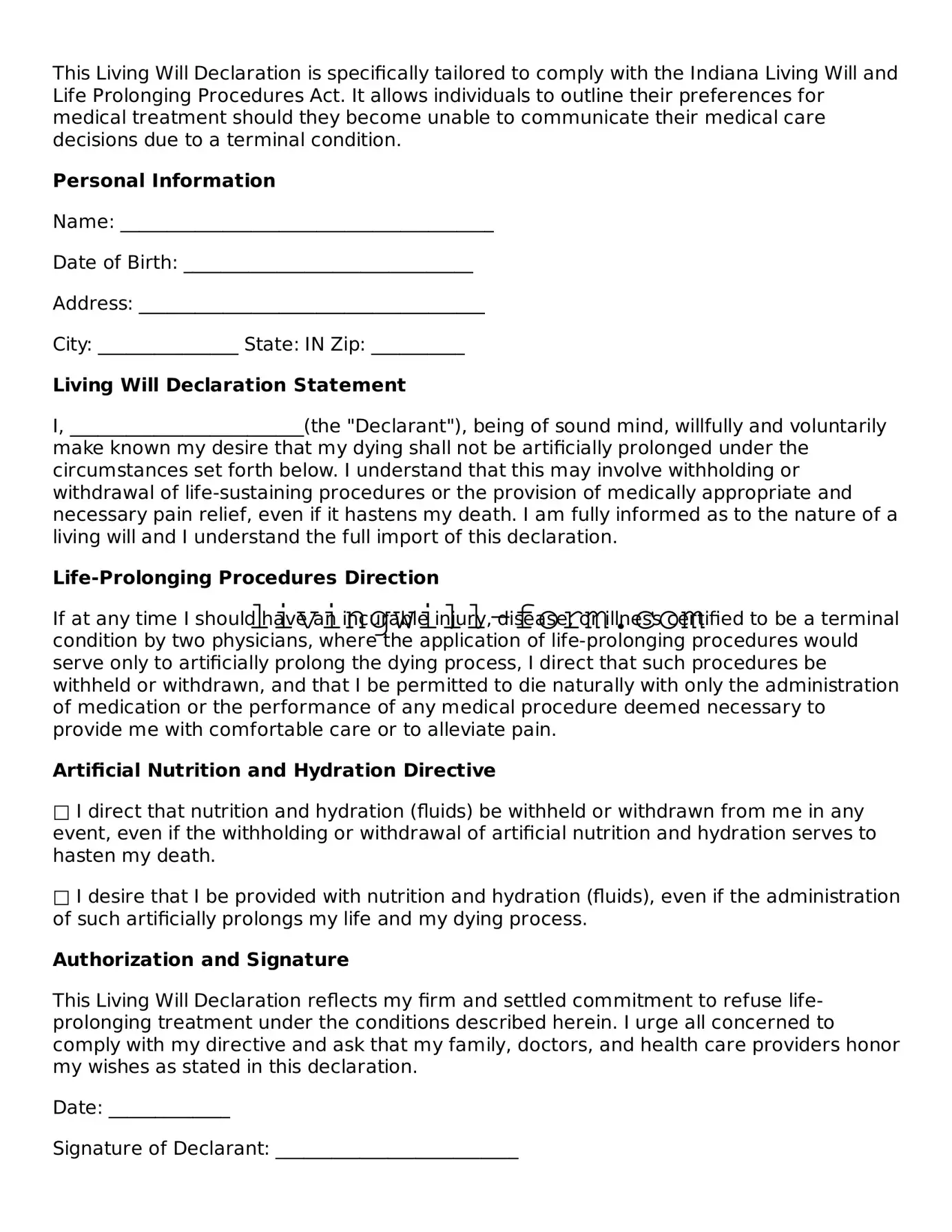This Living Will Declaration is specifically tailored to comply with the Indiana Living Will and Life Prolonging Procedures Act. It allows individuals to outline their preferences for medical treatment should they become unable to communicate their medical care decisions due to a terminal condition.
Personal Information
Name: ________________________________________
Date of Birth: _______________________________
Address: _____________________________________
City: _______________ State: IN Zip: __________
Living Will Declaration Statement
I, _________________________(the "Declarant"), being of sound mind, willfully and voluntarily make known my desire that my dying shall not be artificially prolonged under the circumstances set forth below. I understand that this may involve withholding or withdrawal of life-sustaining procedures or the provision of medically appropriate and necessary pain relief, even if it hastens my death. I am fully informed as to the nature of a living will and I understand the full import of this declaration.
Life-Prolonging Procedures Direction
If at any time I should have an incurable injury, disease, or illness certified to be a terminal condition by two physicians, where the application of life-prolonging procedures would serve only to artificially prolong the dying process, I direct that such procedures be withheld or withdrawn, and that I be permitted to die naturally with only the administration of medication or the performance of any medical procedure deemed necessary to provide me with comfortable care or to alleviate pain.
Artificial Nutrition and Hydration Directive
□ I direct that nutrition and hydration (fluids) be withheld or withdrawn from me in any event, even if the withholding or withdrawal of artificial nutrition and hydration serves to hasten my death.
□ I desire that I be provided with nutrition and hydration (fluids), even if the administration of such artificially prolongs my life and my dying process.
Authorization and Signature
This Living Will Declaration reflects my firm and settled commitment to refuse life-prolonging treatment under the conditions described herein. I urge all concerned to comply with my directive and ask that my family, doctors, and health care providers honor my wishes as stated in this declaration.
Date: _____________
Signature of Declarant: __________________________
Witness Statement
We declare that the Declarant is personally known to us, that the Declarant signed or acknowledged this Indiana Living Will Declaration in our presence, that the Declarant appears to be of sound mind and not under duress, fraud, or undue influence, that we are not the Declarant’s attending physician, not related to the Declarant by blood or marriage, and not entitled to any part of the Declarant’s estate upon their decease under a will now existing or by operation of law.
Witness 1 Signature: __________________________ Date: _____________
Witness 2 Signature: __________________________ Date: _____________
State of Indiana
County of _____________
On this day, ____________, before me, _____________________ (Notary Public), personally appeared _______________________ (Declarant) and ________________________ and ________________________ (witnesses), known to me to be the individuals described in and who executed the foregoing document, and acknowledged that they executed the same as their free act and deed.
Notary Signature: __________________________
My Commission Expires: ______________

